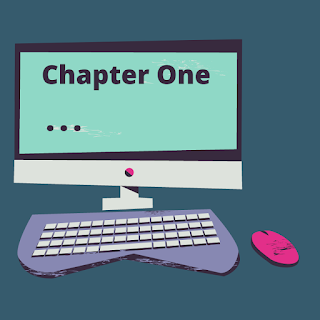This Week's Topic: Writing Better BlurbsOnce upon being a baby writer, I hated writing a blurb. What is a "blurb," you ask? It's the 100-200 words on the back of the book that describes what your book is about in a way that will make readers want to buy it. It's also used on the sales page for your book at most online retailers. It's SUPER important. It's not something you can skip doing. Oh, sure, you can outsource it, but why pay for something that's actually going to save your ass?
Wait, what? Save me? The author? Yep. I said what I said. As a baby writer, I wasn't able to distill my 90k-250k novel into 150 words. Why couldn't I? It took me a long while to answer that question, and the humbling truth was...
There was something wrong with my story.
{GASP}
I know. I know. I know. You're thinking, "KAK, that's impossible! Your works are flawless!" I thank you, dear reader, for that misbegotten belief. (Keep buying my books, though. I swear they get better and better!) However, the inescapable truth of why I struggled with the blurb had nothing to do with "distilling" the novel, and everything to do with a messy plot. I couldn't say it in one sentence because the story didn't hug the plotline. My novel was a freakin' Tree of Life with lots of branches running away from the trunk. It somehow managed to have an ending (probably an unsatisfactory one), but the middle was a disastrophy. How can someone summarize that many tangents? You don't. You also don't publish that book in that state. All hail The Blurb for finding the HUGE problem before the invasion of the 1-star reviews tank your hard work.
The three pieces of a blurb are Hook, Character, and Conflict. 100-200 words works out to roughly two-three sentences per section. It's not very much, is it? This blog post is a lot longer.
The Hook is a one- or two-sentence plot summary that should carry throughout the story (no matter how many twists) and be answered/ resolved by the end of the book. Even if your book is one of a series, that Hook is specific to that book. You're going to use, reuse, and morph that hook all over the place, from advertising to in-person conversations. Learn it, love it, and keep it SHORT.
Character Tip: in genre writing, especially SFF, your character description should include a "classification" that is recognizable to fans of the genre, combined with what makes your protagonist unique from every other protag in that class in your genre. Example: A rock-eating, parasite-wielding, fire warrior is the short description of my protagonist in my high fantasy LARCOUT. "Warrior" is the classification that readers of the genre recognize. "Rock-eating, parasite-wielding" are the uncommon traits meant to lure the fans. Did I have that in the initial blurb? No. Have I used that short description in social spaces in the 8 years since publication? You betcha. Lesson learned? Ayup.
Conflict: If you can't summarize the 500ft -view of the conflict into two or three sentences, go back and take a look at your plot. Did you lose it around Ch13? Did you make it too complicated? (I suffer from this problem, which makes the book clunky and hard to follow. A too-complicated story is a story readers put down and never pick up again.) In the conflict section, add a thrill by including what's standing in the way of the protagonist's success, but also what price the protag will pay for failing.
The best piece of advice I can offer for writing better blurbs is:
Write your blurb before you write your book
(then go back and revise it once you're done with the 1st draft)
Girl, you crazy! Nah. I'm serious. Writing your blurb before you write your book forces you to really think about "what am I trying to accomplish with this story and how am I achieving it." Plus, it saves you so, so, so much rewriting during edits. True for plotters and "organic discoverers."




.png)



















